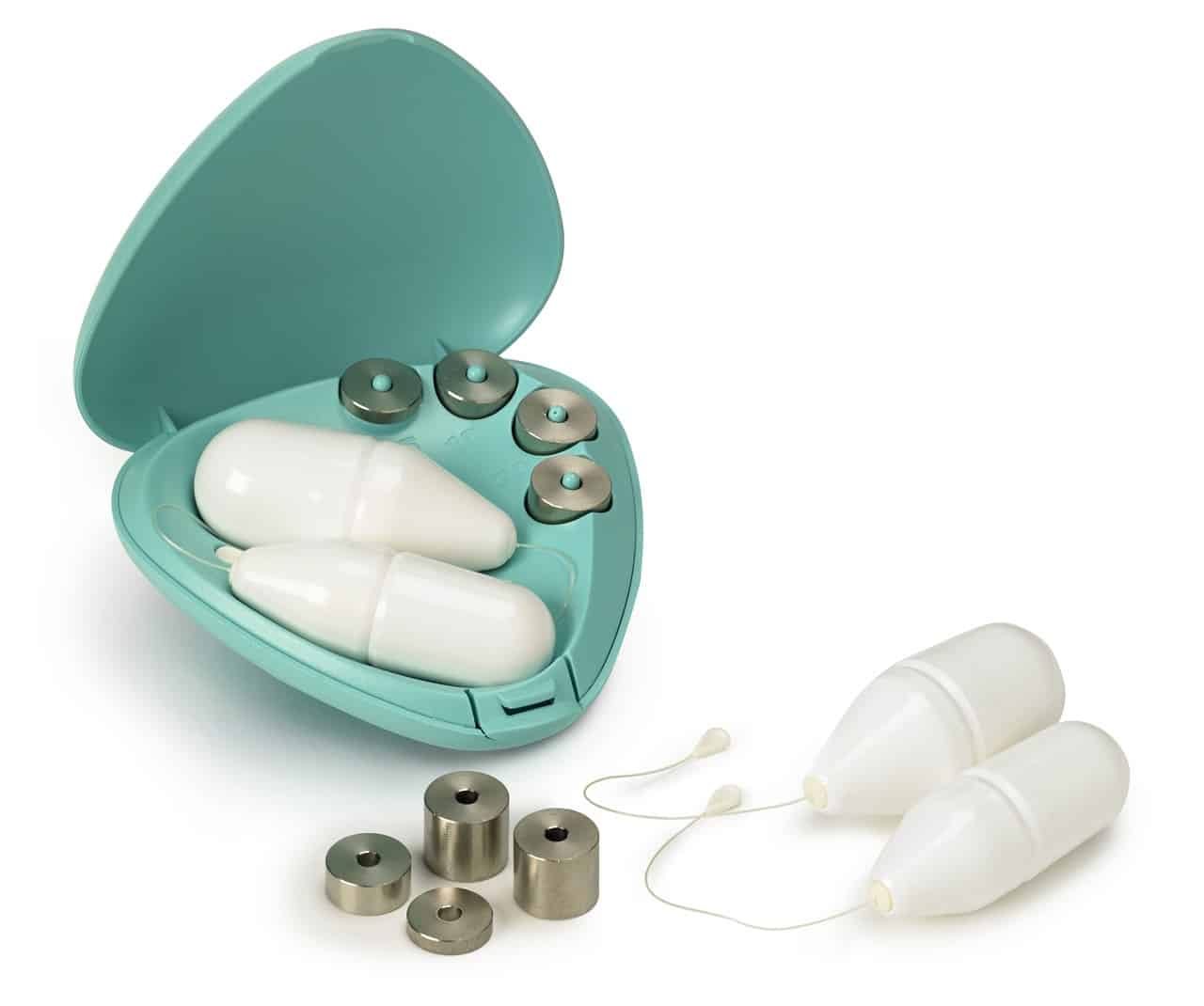Growing up as a woman and just possessing a vagina is all you would need in life to be told a lot of BS by people who most times do not have a vagina.
I can bet the person you first heard talk about a loose vagina was a man. Yeah, a sexist male with a lot of opinions about a body part he doesn’t have.
It might have been used as an insult, or maybe like me, you were being given reasons why you should remain a “virgin,” “chaste,” and “undefiled.” I am not against being a virgin, but you should be sure you are keeping your virginity for all the right reasons instead of a vagina myth such as the loose vagina or the fear of being “defile.”
Sex doesn’t damage, mar, or spoil a woman. Neither does it damage the purity of who you are as a human. When it comes to the vagina, there are loads of myths and misconceptions, most time remnants of purity culture charged by patriarchy and religion.
For instance, some people believe that vaginas can lose their elasticity and become loose as a result of too much sex—this is one of those myths that cannot be farther from the truth.
The vagina is elastic. This means it can stretch to accommodate things coming in like a penis or sex toy, tampons, birth control devices, or going out like a baby. Are you thinking of urine?
Then it is safe to assume that you are a man who skipped all biology classes because women do not urinate from the place where the penis enters or a baby comes out from, AKA the vagina.
Your vagina may slightly loosen as you age or have children, but overall, the muscles expand and contract just like a rubber band or an accordion.
Keep reading to learn more about where this myth comes from, how a “tight” vagina may be a sign of an underlying condition, tips to strengthen your pelvic floor, and more.
Table of Contents
- Breaking down the myth of a ‘loose vagina.’
- A ‘tight’ vagina isn’t necessarily a good thing
- Your vagina will change over time
- How to strengthen your vaginal muscles?
- The bottom line
Breaking down the myth of a ‘loose vagina.’
Let me copy J.Cole when he said first thing first, although I won’t be adding ‘Rest in peace Uncle Phil.” Instead, I would say the first things first; there’s nothing like a “loose” vagina.
With all thanks to age and childbirth, the vagina can change as time progresses, but it won’t permanently lose its elasticity. Time is nature’s tax, and as we all know, it affects everything, including life and the human body.
Historically, the idea of a “loose” vagina was used as a means by turbocharged patriarchy to blame women for their sex lives. The mere assumption that a woman’s vagina can get loose as a result of too much sex should be laughable.
After all, have you ever heard loose vagina used to describe a woman who has a lot of sex with her husband or husbands? NO.
Loose Vagina is mostly used to describe and to shame unmarried women who have sex with more than one guy.
But the fact is that it doesn’t matter how much you have sex or how many persons you have had sex with; too much sex cannot make the vagina loose.
As there is nothing like too much sex except you are complaining about soreness or you are talking about too much sex than you are comfortable with it because your sex life should be all about you.
And again, too much penetration cannot permanently cause your vagina to lose its elasticity.
A ‘tight’ vagina isn’t necessarily a good thing
It is important to know that, particularly if you experience discomfort during penetration, a “tight” vagina can be a sign of an underlying concern.
When you’re aroused, the vaginal muscles spontaneously relax. Your vagina will not relax, self-lubricate, and stretch if you’re not turned on, interested, or physically prepared for intercourse.
Then, tight vaginal muscles could make it painful or impossible to complete a sexual encounter. Vaginismus may also be a symptom of severe vaginal tightness.
This is a treatable physical condition that, according to the University of California, Santa Barbara, affects 1 in every 500 women.
Vaginismus is a pain that occurs during or before penetration. This may mean sexual intercourse, slipping in a tampon, or during a pelvic exam, inserting a speculum.
Make an appointment with your OB-GYN if this sounds familiar. They will determine the symptoms and assist in making a diagnosis.
Your doctor can prescribe Kegels and other pelvic floor exercises, vaginal dilator therapy, or Botox muscle relief injections for vaginismus.
Your vagina will change over time
“Loose vagina” is a very derogatory statement that demonstrates a complete misunderstanding or no understanding at all of the vagina. The vagina is made up of multiple muscles that constitute the pelvic floor.
Depending on the situation, these muscles will tighten and relax (during arousal, the muscles relax). The muscles’ relaxation will make the vagina more or less welcoming.
Your pelvic floor muscles relax when you’re aroused, but your pelvic floor muscles contract again when you are no longer aroused. Some factors can weaken the muscles on the pelvic floor.
A big one is a vaginal childbirth. Menopause, traumatic injury, and gynecological cancer are other prospective causes.
However, aging will cause your vagina to stretch slightly, regardless of whether you have had kids.
Kegel exercises or pelvic floor physical therapy are usually treated for pelvic floor dysfunction. Additional therapy, such as medication or surgery, may be prescribed by a doctor in extreme cases.
Here are some reasons why your vagina may loosen up:
Age
You can begin to see a difference in the elasticity of your vagina beginning in your 40’s. That’s because, when you reach the perimenopausal stage, your estrogen levels will begin to drop.
A lack of estrogen means that the tissue of your vagina will become and these changes may become more evident once you reach full menopause:
- Less stretchy or elastic
- Drier
- Less acidic
- Thinner
Childbirth
If you are thinking will my vagina be larger after child birth? then the answer is probably yes. After a vaginal birth, it’s normal for your vagina to change or alter.
Your vaginal muscles stretch to let your baby pass through the birth canal and out of the entrance of your vagina, after all.
You will find after your baby is born that your vagina feels slightly looser than it normally is. That’s entirely natural. A few days after giving birth, your vagina should begin to snap back, but it may not fully return to its original form.
Your vaginal muscles are more likely to lose a little bit of elasticity if you have had several childbirths. If you’re unhappy with this, you can do exercises before, during, and after pregnancy to strengthen your vaginal floor muscles.
How to strengthen your vaginal muscles?
A perfect way to improve the pelvic floor muscles is to do pelvic exercises. Such muscles are part of the core and help to strengthen you:
- Bladder
- Rectum
- Small intestine
- Uterus
When your pelvic floor muscles weaken from age or childbirth, you may:
- Leaking urine inadvertently or passing breeze
- Feel the continuous need to pee
- Getting pain in the center of your pelvis
- Encountering pain during sex
While pelvic floor exercises can help treat mild urinary incontinence, for women who experience severe urinary leakage, they are not as beneficial.
Your doctor will be able to help you establish a suitable care plan that meets your needs.
Are you interested in your pelvic floor being strengthened? You can try some exercises here:
Kegel exercises

Your pelvic floor muscles need to be identified first. To do so, when you are peeing, stop midstream. If you’re successful, you’ve found the right muscles.
Take these steps until you do:
- Pick a position for your exercises. While doing Kegels, most individuals prefer lying on their back.
- Tighten your pelvic floor muscles and keep the contraction for 5 seconds, then relax for 5 seconds more.
- Repeat this step in a row at least five times.
Increase the time to 10 seconds as you build up power. During Kegels, try not to tense your thighs, abs, or ass. Focus only on your pelvic floor.
Exercise 3 sets of Kegels 5 to 10 times a day for the best performance. Within a couple of weeks, you should see progress.
Pelvic tilt exercises
Using a pelvic tilt workout to improve the vaginal muscles:
- Stand against a wall with your shoulders and ass. Hold the two knees soft.
- Pull the belly button toward the spine. Your back should be flattened against the wall while you do this.
- For 4 seconds, tighten your belly button, then release it.
- Do this ten times, five times a day, or more.
Vaginal cones

By using a vaginal cone, you will also strengthen the pelvic floor muscles. A vaginal cone is a tampon-sized, weighted object you place and carry in your vagina.
To do this:
- Through your vagina, insert the lightest cone.
- Contract the muscles tightly. For about 15 minutes, hold it in place, twice a day.
- If you become more effective in keeping the cone in place in your vagina, increase the weight of the cone, you use.
Neuromuscular electrical stimulation (NMES)
By transmitting an electric current through your pelvic floor using a probe, Neuromuscular electrical stimulation will help strengthen your vaginal muscles.
The electric stimulation will cause the muscles of your pelvic floor to contract and relax.
You may use a home Neuromuscular electrical stimulation machine or have the procedure done by your doctor. A standard session is 20 minutes long. You should do this for a couple of weeks, once every four days.
The bottom line
Please note: a “loose” vagina is a myth. Age and childbirth will cause your vagina to lose some of its elasticity slightly naturally, but your vaginal muscles will not permanently stretch out. Your vagina is going to snap back to its original shape in time.
Contact your doctor to discuss what’s troubling you if you’re nervous about changes to your vagina. They will help to relieve your fears and guide you about how to move forward.
The average head of a newborn baby 13 3⁄4 inches (35 cm), yet the vagina still snaps back after pushing that out, so don’t you think it is a little dimwitted to believe sex with a penis of an average of 15.2 cm can make the vagina loose?
References:
- Is a loose vagina caused by too much sex? Myths & Facts: Refinery29
- Loose vagina: What causes this, how to tighten up and more: Healthline






